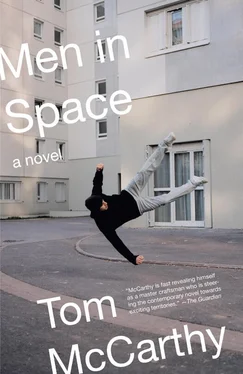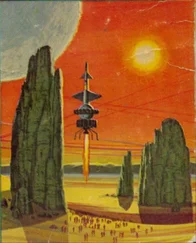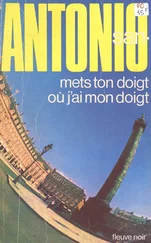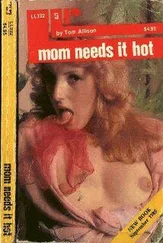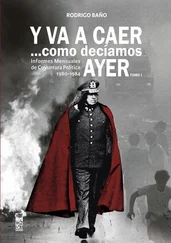“Toast him. Yes. To Joost.”
“Joost.”
They clink. Han knocks his glass back in one go. Nick sips at his. The stuff is sour and chemical, like gin gone bad. He looks around the room. The walls are hung with posters which all have the same distinctive character: part collage, part photography, part painting. One of these, a large wall calendar, has photos of boys who look like the ones he’s just seen working in the other room.
“Did you make these?”
“All mine. That’s what I do. Commercial artist. Publicity, design …” Then, without warning: “I have strange dreams.”
“About what?” Nick tries not to sound anxious as he asks this.
“Him. Joost.”
“I understand that.” He gets them as well, about his grandfather: turning up to explain that, although he’s dead, he and Nick can still hang out as long as …
“The other night,” Han says, “I met him in the street, and it was raining. There were people with umbrellas, and their faces in the windows of the shops, reflected. It was water, watery: the windows all had droplets running down them …” He fills his glass again. Droplets . “Because he drowned, I think. But in my dream, like I said, there were reflected faces, blurred by rain; and I was looking in these, and I saw his own. We talked, but only through the window. I knew if I turned to face the real Joost he would go.”
“I’ve had that too!” says Nick.
“With Joost?”
“No, with …”
“OK. But Joost explained to me he’s still in the ice, travelling north: away from the shore, past Finland, to Lapland and on to Greenland. Even to the far north, the North Pole. I asked him how, in what way this is possible — if he is walking, or just floats, or swims, or if he’s turned into a fish, or penguin, or I don’t know what; but the other people with the black umbrellas crowded in closer until his face was gone. What do you think?”
“I …” What’s he supposed to say? “Was his body found?”
“By an ice-breaker, yes. Do you know what an ellipsus is?”
“I … Sure, but …”
“Come with me: I’ll show you.”
Han leads him back into the other room and says something in Dutch to one of the young men, who answers with a phrase Nick takes to mean You can see for yourself . Han bends down and picks a sheet of paper from the footrest-like platform onto which the press is still sliding the large printed sheets, its windscreen-wiper whining uninterrupted. Fifty or so have collected there, face down; other piles of fifty or so each are stacked around the floor. Han turns the paper over and shows it to Nick.
“That’s the … My God!”
“You know it already?”
He knows it alright: it’s the icon painting Maňásek copied for Anton. Or rather … It’s the same painting, only modernized. There’s that squat building at the bottom, but it has … are those television aerials? satellite dishes? The birdlike creatures that were floundering around the mountain have become city dwellers leaning out of windows, and the mountain itself has become a tenement building. The ships have been slightly enlarged, become more prominent — but they still occupy the same position, on the ocean above which the saint figure’s ascending, floating upwards. The golden, eggy oval around his head has become a kind of helmet, a Plexiglas bubble, elongated like the bubbles Nick was blowing from the ladder at that party at Jean-Luc’s. Bublifuk. And those strange letters have become graffiti scrawled across a wall on the pavement, beside which a pistol is lying — graffiti, or perhaps a shop sign, written in a foreign, non-European alphabet. Western text is laid on top, Dutch words:
Reis om de Wereld
Amsterdam
20 tot 23 maart 1993
“Rice on the World?”
“No. Journey. Race. A round-the-world race.”
“What in?”
“Ships. Canvas ships. Wind, not motor.”
“Sailing ships.”
“Right. Old ones. Large ones. The ships will start from here. From the harbour. I am commissioned to make posters for publicity.”
Ships — lots of them, and a harbour. Was it a film he saw? Or an old photograph, a painting? That icon, sure — but there was something else too, something that’s etched in deeper. Which artist he knows painted ships? Turner, of course — but which modern artist? Han’s looking at him.
“You recognize the image?”
“Absolutely! My flatmate was copying it. The one whose paintings Joost was preparing to show in …”
“Yes, of course. You lived with this man.”
“I watched him copy it. On and off. He spent days mixing up paint and varnishing these bits of wood and … How did you come to …”
“Joost sent it to me. He was writing me about it, then he sent it to me with this Ivan Maňásek’s own paintings. Do you like what I do with it?”
“Well, yes … But then, you have the original here? I mean, the one you made this image from?” Why isn’t it with Anton? Maňásek was making two copies; maybe the second one was for himself. But then why …
“Correct. At my flat. For me, it is significant of Joost. You understand? The way the rising man is entering this ellipsus shape. Do you believe in heaven?”
“No.”
“Me neither.” Han sets the poster down again. He’s wearing pince-nez glasses, but Nick can still see his eyes becoming red and pressured. He pinches his nose above the glasses’ bridge, looks around the workshop, asks something in Dutch to one of the assistants and, getting an answer, turns to Nick and says:
“I must be in the centre soon. You want to come with me? I go by boat.”
“Well … I’d like to, but I have my bike.”
“We put it on the boat. I get the engine and petroleum and oar. I can explain you more about the show while we are voyaging.”
The boat’s a chug-chug metal dinghy, blue with red seats through which older green paint peeps. Beneath these are wooden slats; beneath the slats, an impasto of leaves submerged in water. While Han scoops out the water with a bucket, Nick unlocks his bike — and, as he does this, notices a strange contraption at the back of the space centre. It’s a kind of giant tube, the shape of a car’s exhaust, running from the building itself to beside the canal, where it widens to perhaps fifteen feet in diameter and then, narrowing again, cuts back into the building. There’s a man in one of those old overalls up on a ladder beside it, reading a meter on its side.
“A wind tunnel,” Han says, looking up at him from the boat. “That’s why the street has this name: wind tunnel, Windtunnelkade.”
“What do they use it for?”
“To test cars, I think. The space age is passed by now, at least here in the Nederlands. I made a photograph in the wind tunnel one time, for a poster: there was a South African violinist, from the Cape Town Symphony Orchestra, with his hair blowing back.”
A Cape Town Symphony … Where’s this line coming from? A Cape in sympathy … Estania … Words bob on the canal just beside the boat where coots are fighting for scraps of bread drifting from the far side of a wooden houseboat. Did someone say this to him recently? Han’s clipped the silver outboard motor on and poured some petrol in; now he’s loosing the mooring ropes and holding his arms out for the bike. Nick passes it to him and climbs on board; Han levers them away from the bank with the oar. The motor catches at the third pull, and they head off wrinkling the water, pushing coots and ducks in front of them. They turn into a wider canal and pass an enormous barge onto the deck of which a JCB is loading sand. Tubes are hanging from the bank into the water, half-submerged: they look like intestines or spaghetti. They chug beneath a bridge, then turn onto an even wider canal. There are houseboats on both sides: big ones, sometimes double-deckers, funnels and chimneys poking through their roofs and porches at the back with plants and aviaries on them, cats lounging on chairs. Sometimes their owners too: it’s not that cold. The sky’s clear, scrawled over by vapour trails from high-flying aeroplanes. Lower, trail-less ones are banking to the northwest, tilting their noses towards Schiphol; others are rising, heading who knows where. Luchtvaart …
Читать дальше
